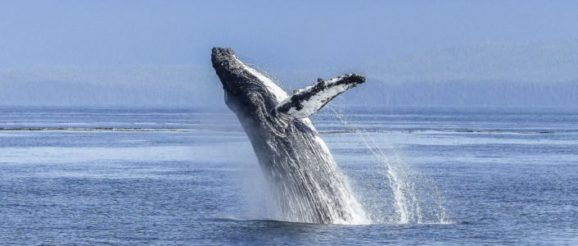Nine more states join seismic blasting lawsuit against the Trump administration | Inhabitat – Green Design, Innovation, Architecture, Green Building

Subscribe to get free weekly updates on the latest news on innovation and design.
Several conservation groups and South Carolina coastal communities sued the Trump Administration earlier this month for allowing companies to conduct seismic blasting surveys in the Atlantic Ocean as a precursor to offshore drilling for oil and gas. And now, a coalition of nine states has joined the lawsuit and added their clout to the claim.
Last week, a coalition of attorneys general from Maryland, Virginia, North Carolina, South Carolina, Massachusetts, Delaware, Connecticut, New Jersey and New York filed a motion to intervene in the lawsuit because the seismic surveys will expose marine life to repeated sound blasters louder than 160 decibels, and that could lead to dangerous consequences.
Maryland Attorney General Brian Frosh, the leader of the coalition, says that the Trump Administration continues to make the interests of the fossil fuel industry a top priority over our natural resources. Therefore, attorneys general along the Atlantic Coast will continue to fight the efforts of Atlantic shore drilling.
Diane Hoskins, the campaign director for Oceana— one of the nine groups suing the Trump Administration— applauded the AG coalition for standing up for their states.
“Putting our oceans, marine life and coastal economies at risk for dirty and dangerous offshore drilling is wrong, and we are not backing down. Seismic airgun blasting in the Atlantic defies law, science and common sense. They acted unlawfully, and we’re going to stop it. Oceana is pleased so many states are joining this critical fight,” said Hoskins.
This lawsuit comes less than a month after the National Marine Fisheries Service issued five Incidental Harassment Authorizations that permit companies to use airgun blasting off the Atlantic coast.
During the seismic blasting process, ships fire blasts of air to the bottom of the ocean every ten seconds for weeks or months at a time. They do this to map the contours of the ocean floor with the goal of finding oil and gas deposits.
However, the loud, continuous noise can damage the hearing of marine life, or possibly disorient and kill the animals. It can also negatively impact commercial and recreational fishing by decreasing catch rates.
And, because burning fossil fuels is causing rapid climate change, these conservation groups, along with these nine states, are trying to stop the federal government’s “flat-out wrong” decision to allow offshore drilling on the Atlantic coast.
